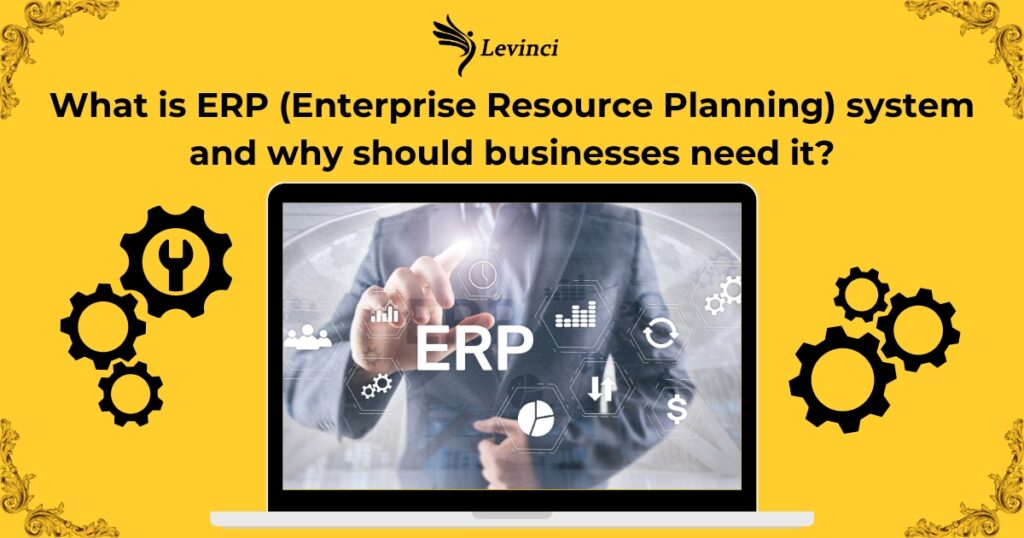ERP System is one of the important and necessary software for every business today. So what is ERP? What are the advantages and disadvantages of ERP System? Let’s find out the details in the article below.
Detailed explanation about ERP system
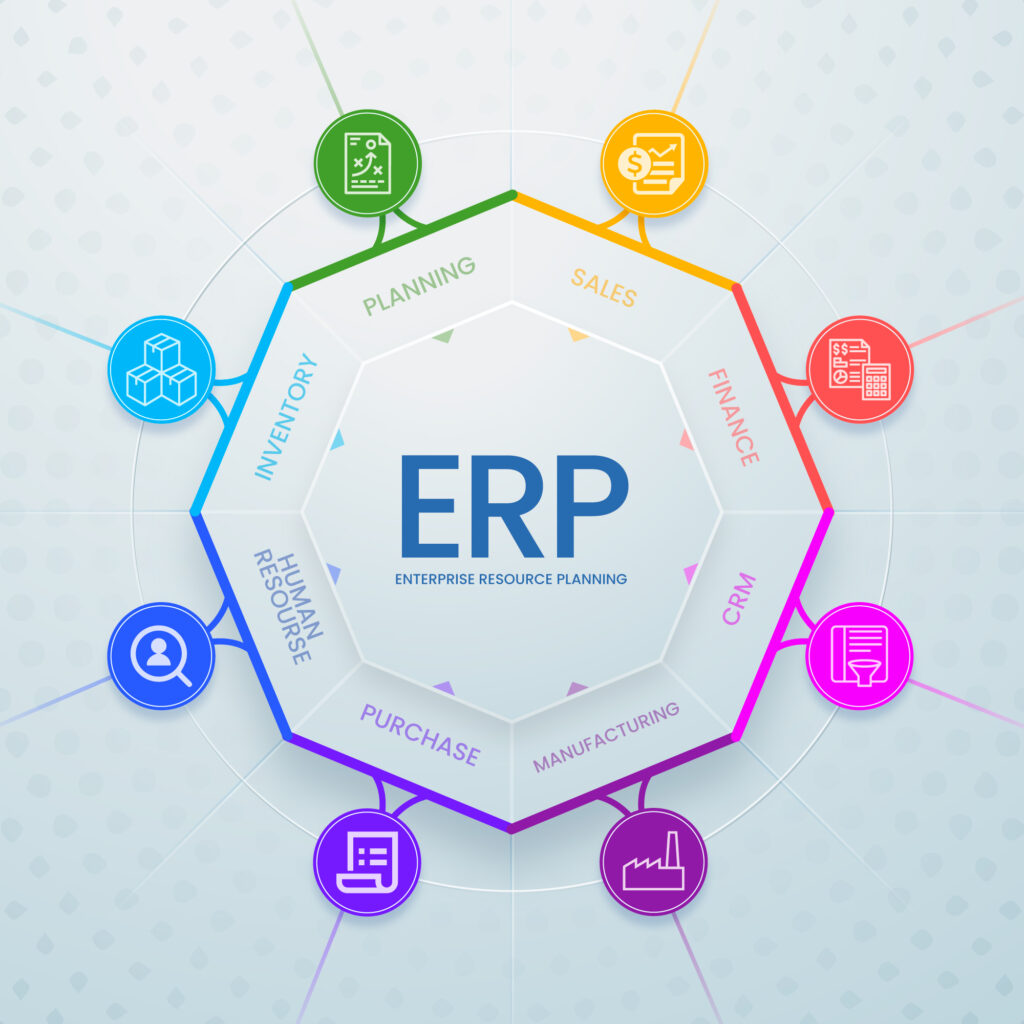
ERP (Enterprise Resource Planning) system refers to a kind of software that businesses can use to manage all aspects of business activities such as procurement, accounting, project management,… These systems serve as a company’s core hub for data and workflow from beginning to end, allowing a variety of departments to access.
Planning, budgeting, forecasting, and reporting on the financial success of the company are all made easier with an all-inclusive ERP system. Furthermore, modern cloud ERP software also makes it possible for internal processes to be connected to networks and business partners globally, which improves responsiveness, flexibility, and collaboration for organizations.
Today, the ERP system plays a very important role in businesses, it is considered the backbone of business operations and management in all industries of many different scales.
Why should businesses use ERP?
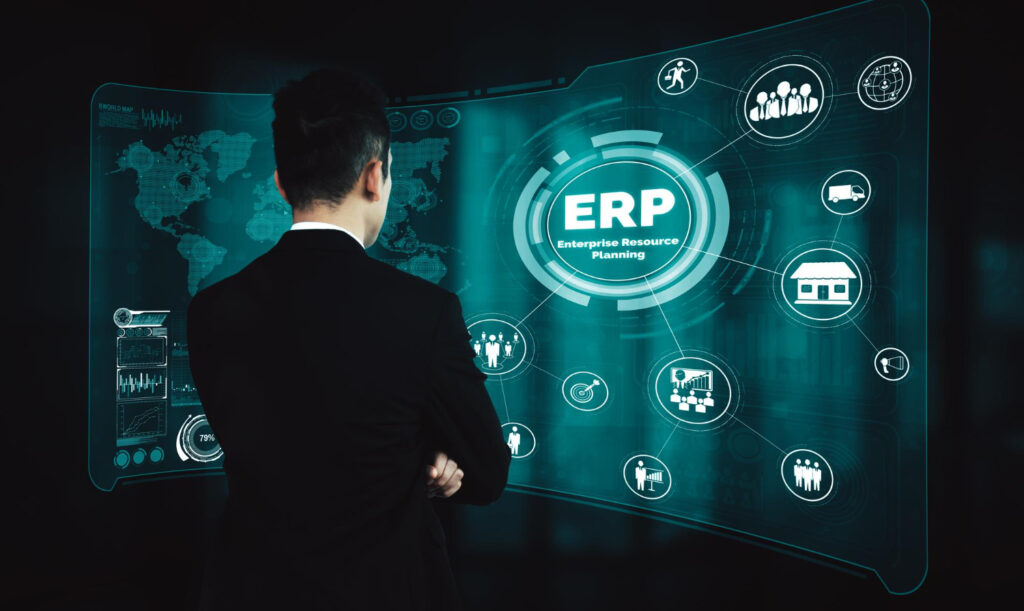
Businesses can synchronize different divisions and optimize workflows when company data and procedures are gathered into ERP systems, leading to significant cost savings.
- Higher productivity: ERP automates manual processes, helping employees save time and focus on more important work. In addition, the system helps complete work faster by simplifying processes and reducing time spent searching for information.
- Real-time reporting: ERP reports always update data in real-time, helping to make decisions based on the latest information, especially useful in a fiercely competitive business market.
- Standardize human resource activities: The ERP system will control working hours, departure times, and workload of each employee in every department effectively. This will help managers evaluate employee capabilities, reward and punish fairly, and pay salaries on time.
- Convenience in communication: With high flexibility, ERP helps enhance communication within the organization. Employees can share information easily and improve interaction between departments.
- Data-Driven Decision Making: ERP provides a centralized platform with real-time data from all departments. This empowers informed decision-making at every level, based on accurate and insightful information.
- Scalability and Adaptability: ERP systems are designed to grow alongside your business. They can be easily scaled and customized with additional modules to meet evolving needs.
- Risk Management: ERP provides a centralized view of operations, allowing for better identification and mitigation of potential risks.
Some disadvantages of ERP Systems
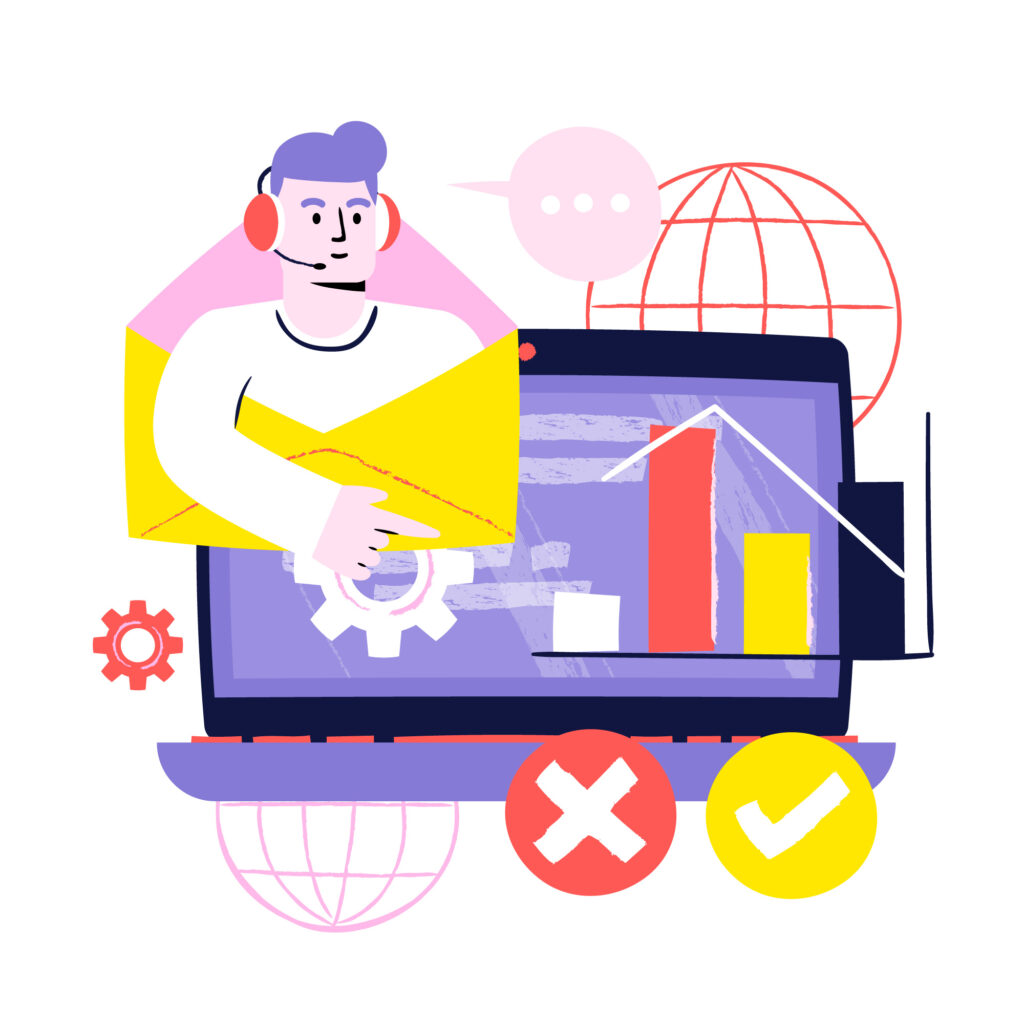
Along with the benefits, ERP still has many limitations that businesses need to consider carefully before deciding to use. As follows:
- Expensive: The cost of implementing an ERP system is not a small investment for businesses, especially small and medium enterprises. Because businesses need to pay deployment costs, copyright costs, costs for each user, and annual maintenance costs,…
- Complexity: ERP systems can be complex to learn and use, requiring significant training for employees across departments.
- No instant results: Implementing and getting used to the ERP system will take a lot of time in the beginning. Businesses must organize training sessions to ensure all employees understand how to operate and apply the ERP system at work.
How do ERP systems work?
First, businesses need to choose a compatible ERP type. Then, the hosting company will load the applications onto the server the client is renting and integrate the client’s processes and data into the platform.
ERP acts as ‘’the brain’’ of the business. The system will connect many parts of a business and its processes together, allowing data synchronization across the business.
ERP combines various reports and statistics from all business departments into one place. Thanks to that, you can easily monitor the performance of your business, have a full view of what is going on, and clearly understand how the business’s resources are being used.
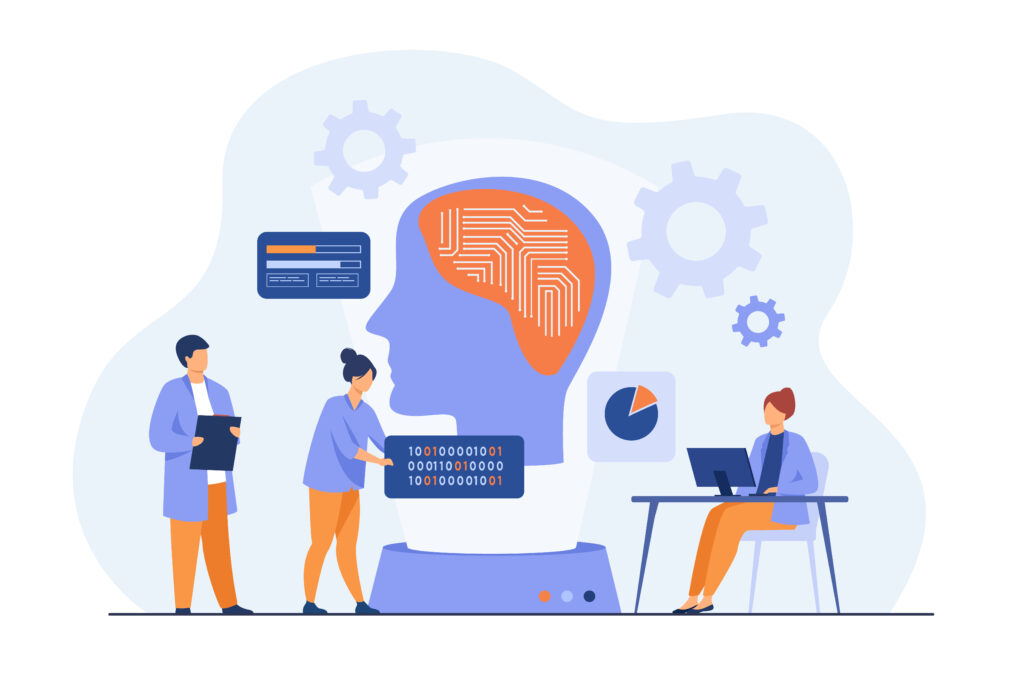
Popular types of ERP solutions
There are 3 popular types of ERP solutions:
- Cloud-based ERP software: Your ERP system is hosted on the cloud by third-party service providers such as Amazon Web Services (AWS), Google Cloud Platform, etc. This form has many advantages such as: Low initial cost, access anywhere, anytime and guaranteed with SLA.
- On-premise ERP software: Your ERP system is installed and operated on your business’s own servers and infrastructure and managed by your internal IT team. This ERP System has characteristics such as high initial costs for infrastructure investment, need for experienced IT staff and the ability to control and customize the system to the fullest.
- “Hybrid” ERP software is a combination of cloud-based and on-premise ERP system solutions. Your ERP system is accessible over the internet and hosted on a server from your service provider. “Hybrid” ERP software has a balance between control and flexibility, effective data security control and high complexity.
How to Select the Right ERP System
Determine the features and functions your business needs
To choose the right ERP system, you need to comprehensively evaluate your current business processes to determine what needs to be improved and what features are needed in the new ERP system.
Consider the balance between costs and benefits
Depending on the supplier, the number of modules that need to be deployed, the technology infrastructure and the number of users,… there are different ERP implementation costs. Therefore, you need to carefully consider initial implementation costs, maintenance costs and some additional costs to ensure corresponding benefits.
Book a consultation from a software company
If you cannot come up with the most optimal solution for your business yourself, you can book companies or units implementing the ERP system for advice and implementation in the best way.
Levinci is one of the most reputable software companies on the market. With many years of experience in the industry, Levinci can solve all operational and management difficulties that businesses are facing through smart and flexible software solutions.
Conclusion
The above article explained what is an ERP System as well as its advantages and disadvantages. Thanks to ERP System, all difficulties will be resolved quickly. If you are in need of implementing an ERP System, please contact Levinci now!

